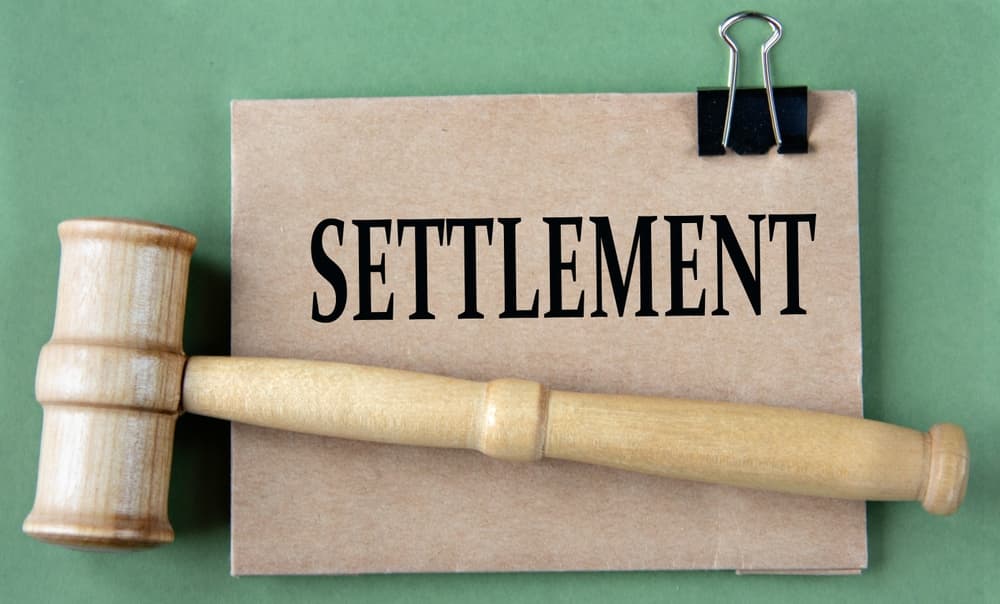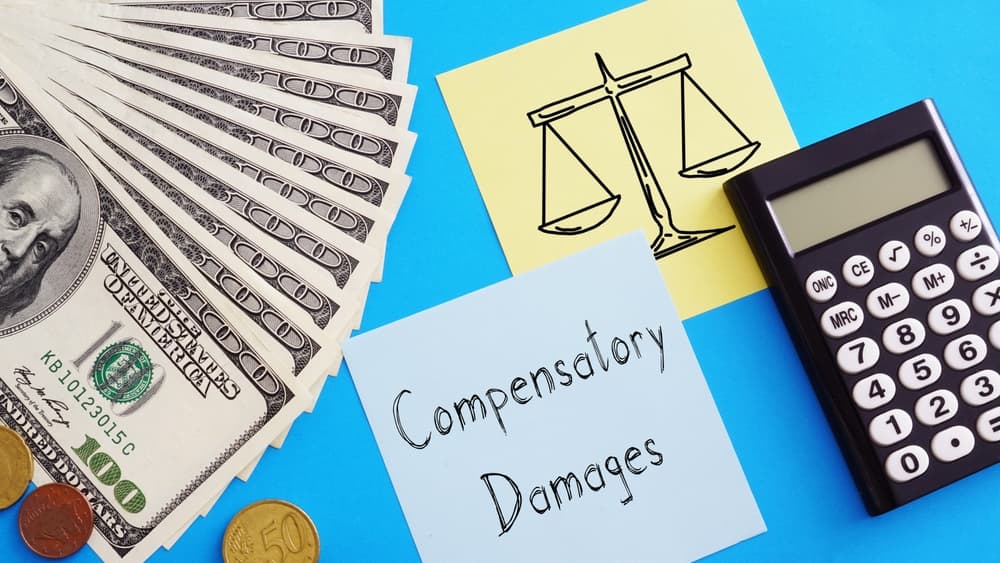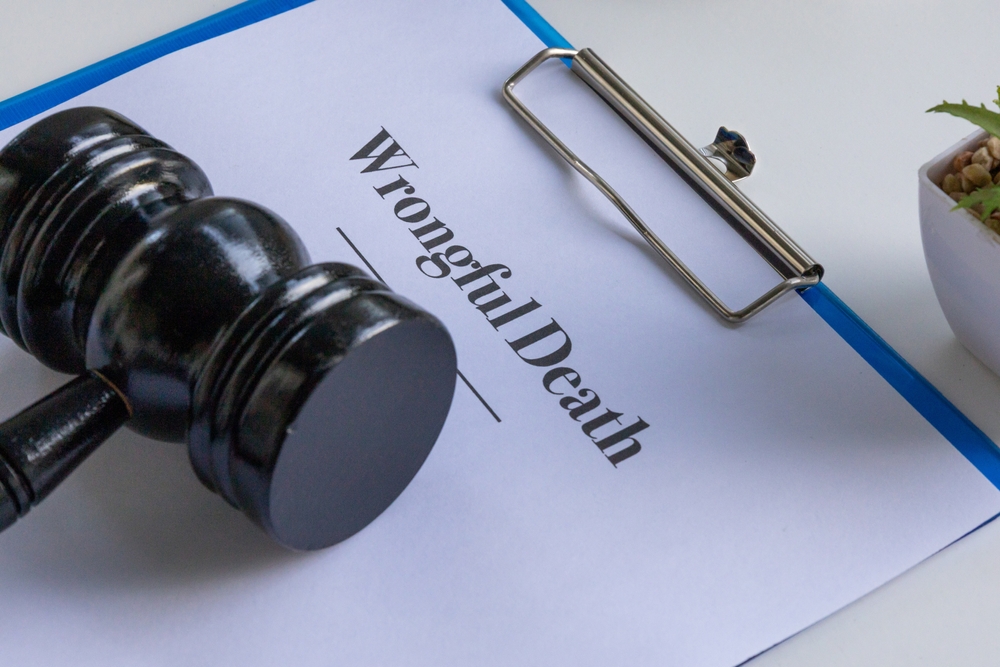Wrongful death settlements are typically paid in a single lump sum or through a structured payment plan. The funds are first sent to your wrongful death lawyer’s trust account, where outstanding debts like medical bills and legal fees are paid. The remaining amount is then distributed to the surviving family members according to a plan approved by an Illinois court.
The process is not as simple as it sounds. It involves satisfying medical and health insurance liens, calculating legal fees, and dealing with the probate court system to ensure the money is divided fairly under the Illinois Wrongful Death Act. These are intricate financial and legal steps that happen only after a settlement is reached.
You are dealing with a profound loss. Your focus should be on your family. The nuances of settlement distribution—from negotiating with insurance companies to filing petitions in court—are burdens we take on for you.
Let our firm handle the legal work while you focus on what matters most. Call Abels & Annes, P.C. at (312) 924-7575 for a clear explanation of your rights.
The Core Question: Who Actually Receives the Settlement Money?

This is determined by law, not just by a will or family agreement. In Illinois, a wrongful death settlement is intended to compensate the surviving spouse and next of kin for their losses.
Defining "Next of Kin"
This typically includes children and parents. The distribution is governed by state laws of intestacy, which is the legal framework for dividing assets when someone dies without a will. The court will determine the appropriate distribution based on the level of dependency each family member had on the deceased.
Wrongful Death Claim vs. The Estate
It's important to understand the difference between a wrongful death claim and a survival action. They are two separate legal concepts that address different types of harm.
- Wrongful Death: This type of claim compensates the family members for their own losses. In simple terms, it addresses the financial and emotional impact the death has had on the survivors, such as lost financial support, grief, and loss of companionship.
- Survival Action: This is a separate claim that allows the estate to recover damages the deceased person could have claimed if they had survived. It addresses the harm suffered by the victim before their death, such as their conscious pain and suffering, medical bills, and lost wages incurred between the time of injury and death.
Our role is to ensure that all eligible beneficiaries are identified and that the claim is structured to address all forms of loss recognized by Illinois law. We will build a comprehensive case that accounts for both the family's loss and the suffering of the deceased.
Lump Sum or Structured Settlement? Choosing the Right Path for Your Family
The two primary ways settlement funds are paid out are a lump-sum payment and a structured settlement. Each has distinct advantages, and the right choice depends entirely on your family's specific circumstances and long-term needs.
Lump-Sum Payouts
What It Is: A single, complete payment of the entire settlement amount.
When It's Used: This is the most common form of payment. It provides immediate financial resources that can be used to pay off outstanding debts, cover immediate expenses, and begin the process of rebuilding financially. It offers the greatest flexibility.
Considerations: While the immediate access to funds is a major benefit, it also places the full responsibility of managing a large sum of money on the recipient. This requires careful financial planning to ensure the funds last and are used wisely.
Structured Settlements
What It Is: A series of guaranteed, periodic payments made over a set number of years or for a lifetime. It functions much like a private pension plan created specifically for you with the settlement funds.
When It's Used: A structured settlement is a powerful tool for ensuring long-term financial security. It is frequently used in cases involving minor children, guaranteeing that funds will be available for their care, support, and education well into adulthood. It is also a valuable option for any family that wants the peace of mind of a steady, guaranteed stream of income over many years.
Our role is to provide you with all the information you need. We work with you and financial professionals to analyze your family's situation and help you determine which payout method best aligns with your long-term goals and financial security.
The Journey of the Settlement Check: A Step-by-Step Breakdown
Before any money reaches your bank account, a precise, legally mandated process must unfold. This is a journey with several steps, and our firm manages every single one to ensure it is done correctly and efficiently.

Step 1: The Settlement is Finalized and Funded
After all parties sign the final settlement agreement, the defendant's insurance company or legal team processes the payment. This can take anywhere from a few weeks to a couple of months, depending on the complexity of the case and the insurer's internal procedures.
Step 2: Deposit into a Client Trust Account
The settlement check is made payable to you and our firm. By law, we must deposit it into a federally-insured client trust account. This is a special, highly regulated bank account that keeps client funds completely separate from the law firm’s own operating funds. The money is protected and held for you until all obligations are met.
Step 3: Resolving All Liens on the Settlement
What is a Lien?
A lien is a legal right or claim for payment held by a third party against the settlement funds. In simple terms, it’s a bill that must be paid from the settlement before you can receive your money.
Types of Liens We Handle:
- Medical Liens: From hospitals, doctors, surgeons, and ambulance services for the medical treatment your loved one received for their final injury.
- Health Insurance Liens (Subrogation): If your health insurance, whether private or employer-provided, paid for medical bills, it has a legal right to be reimbursed from the settlement.
- Government Liens: Medicare and Medicaid have a federal right to reimbursement that is very strong and must be addressed. The government takes these liens seriously, and failure to repay them can result in significant penalties.
- Workers' Compensation Liens: If the death occurred in a work-related context and workers' compensation benefits were paid, the insurance carrier has a right to be repaid from any third-party settlement.
This is where a dedicated law firm adds significant value. We don't passively pay these bills—we actively and aggressively negotiate with lienholders to reduce the amount they are owed. We challenge improper charges and argue for reductions based on the facts of the case. Every single dollar we save you on a lien is a dollar that goes directly into your family’s pocket.
Step 4: Payment of Attorney's Fees and Case Costs
We handle wrongful death cases on a contingency fee basis. This means we are only paid if we secure a settlement or verdict for you. Our fee is a pre-agreed-upon percentage of the total recovery, which is standard in these types of cases.
We also deduct the case costs that we advanced on your behalf. These are the funds needed to build a strong case, such as court filing fees, fees for expert witnesses, and costs for obtaining medical records and deposition transcripts. This is all detailed for you in a transparent final settlement statement.
Step 5: Obtaining Court Approval for Distribution
Under the Illinois Probate Act, a judge must approve the wrongful death settlement and the plan for distributing the net funds. This step protects the beneficiaries, especially if they are minors or disabled adults.
The court reviews the settlement to ensure it is fair and that the proposed distribution plan is lawful and equitable for the surviving spouse and next of kin. Our attorneys prepare and file all the necessary petitions and represent your family's interests in court to secure this final approval, completing the legal process.
Will You Have to Pay Taxes on the Settlement?
Fortunately, the answer is generally favorable for those receiving a wrongful death settlement.
Compensatory Damages are Typically Tax-Free

The Internal Revenue Service (IRS) states that money received for personal physical injuries or physical sickness is not considered taxable income. Wrongful death settlements fall into this category. This tax-free status applies to damages awarded for the family's losses, such as loss of financial support, grief, sorrow, and loss of companionship.
Potential Exceptions to the Rule
While the core of the settlement is non-taxable, there are a few potential exceptions to be aware of:
- Punitive Damages: In rare cases where punitive damages are awarded to punish the defendant for extreme or reckless conduct, that specific portion of the award is considered taxable income by the IRS.
- Survival Action Damages: Portions of the settlement that are allocated to the estate through a survival action for pre-death damages could potentially be subject to estate taxes, depending on the size of the estate.
- Interest: If any interest accrues on the settlement amount between the time it is finalized and when it is paid, that interest is taxable.
Our Guidance
We provide a clear and detailed breakdown of all the settlement components on your final statement. While we structure the settlement to be as tax-advantageous as possible, we always advise our clients to consult with a qualified tax professional for personalized financial planning and to ensure full compliance with all tax laws.
Frequently Asked Questions About Wrongful Death Settlements
How long does it take to get the settlement money after a case is settled?
Once a settlement agreement is formally signed by all parties, it typically takes between 30 and 90 days to complete the entire process. This timeframe includes the defendant's insurance company funding the settlement, our firm negotiating and paying all liens, and obtaining the final court order approving the distribution of the funds to the family.
What happens if the person at fault has no insurance?
This creates a challenging situation, but it does not always mean recovery is impossible. We immediately investigate other potential sources of recovery. This could include your own insurance policy's uninsured/underinsured motorist coverage, which steps into the shoes of the at-fault party's missing insurance. We also investigate whether a third party, such as an employer, property owner, or product manufacturer, shares liability for the death.
Can a wrongful death claim be filed if the deceased was an unmarried adult with no children?
Yes. Under the Illinois Wrongful Death Act, if there is no surviving spouse or children, the claim can be brought for the benefit of surviving parents and siblings. Those family members would need to prove they suffered a loss, which can include grief and sorrow as well as the loss of a close relationship.
Does the settlement money have to be shared with all relatives?
No. The settlement is distributed only to the "surviving spouse and next of kin" as defined by Illinois law and as approved by the court. Extended relatives like cousins, aunts, or uncles are generally not eligible to receive a share. The court determines the percentage each eligible individual receives based on their degree of dependency on, and relationship with, the deceased.
My loved one died in a workplace accident. How does that affect a wrongful death settlement?
This is a situation involving two distinct types of claims. While you are generally entitled to benefits through the Illinois workers' compensation system, which is a no-fault system, you may also have a separate third-party wrongful death claim. You can file a lawsuit against a person or company other than the employer whose negligence caused the death—for example, the manufacturer of faulty equipment, a negligent driver who caused a crash while your loved one was on the job, or a subcontractor on a construction site. We will investigate all potential sources of recovery to ensure your family receives the maximum compensation available under the law.
Let Us Provide the Clarity Your Family Needs

The aftermath of a wrongful death is not a time for you to be deciphering legal documents, battling with lienholders, or negotiating with insurance companies. It is a time for family, for grieving, and for healing. Our role is to lift that legal and financial weight from your shoulders completely.
We manage the entire process with the dedicated goal of securing your family’s future, allowing you to focus on what truly matters.
For a compassionate and clear-headed personal injury lawyer during this difficult time, contact Abels & Annes, P.C. now. Call us at (312) 924-7575 or reach out online to begin a free, no-obligation conversation.
